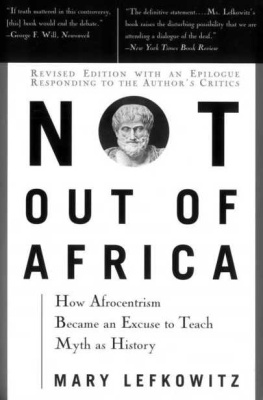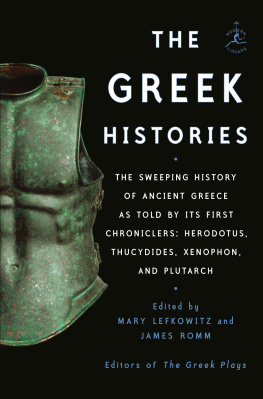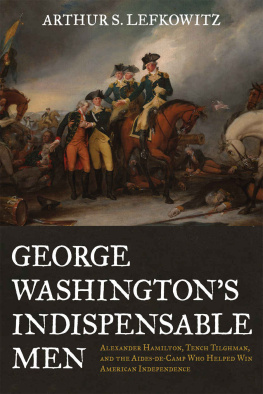ACCLAIM FOR NOT OUT OF AFRICA
"An anguished and eloquent cry against declining standards of historical scholarship and against the teaching of `feel good' history." -Kirk us Reviews
"With great eloquence, learning and compassion, Not Out of Africa shows how preferring myth to facts is a disaster for everyone." -Wall Street Journal
"The real problem with Afrocentrism ... is not that its `truth' about Greece and Egypt are false. More dangerous is the underlying attitude that all history is fiction, which can be manipulated at will for political ends." -Time
"A careful and methodical response to one of Afrocentrism's central tenets: that the ancient Greeks hijacked much of their philosophy, theology, and science from the ancient Egyptians and passed it off as their own invention." -Boston Globe
"A painstaking refutation of the main Afrocentric mythologies which have come to prominence from their small beginnings in the 1950s to their high-water mark following Martin Bernal's Black Athena books in the 1980s." -The Times (London)
"Lefkowitz presents the evidence and arguments underlying classical scholars' objections to Afrocentric claims clearly and concisely." -American Historical Review
"Lefkowitz is superb at lighting the dim corridors in which falsehood is transmuted into fact." -Commentary
"Should you read Not Out of Africa? Yes. It is a work of true merit and even unsettling knowledge is a useful tool." -Virtual Dashiki
"Mary Lefkowitz will make enemies.... Cassandras are, after all, inconvenient, especially when they show that a myth designed to help a particular community is in reality demeaning that community and helping to marginalize it." -Times Literary Supplement
"Written in reaction to a veritable firestorm of criticism and vituperation, sometimes quite ugly." -Glenn Loury, Arion
"Mary Lefkowitz's courageous book reminds us that history must be based on evidence, openly arrived at and openly argued, not a myth, ideology, or opinion. She further reminds us that if scholars abandon the canons of scholarship, then the university itself is in peril." -Diane Ravitch, New York University
"Not Out of Africa combines a learned demolition of various 'politically correct' historical fantasies with a thoughtful inquiry into questions of historical method and of academic freedom. Anyone perplexed by multicultural education should read it." -Arthur Schlesinger, Jr., CUNY Graduate Center
NOT OUT OF AFRICA
For Guy MacLean Rogers ... nunc uino pellite curas; cras ingens iterabimus aequor.
NOT
OUT OF
AFRICA
HOW AFROCENTRISM
BECAME AN EXCUSE TO TEACH
MYTH AS HISTORY
MARY LEFKOWITZ





CONTENTS
ix
xi
ILLUSTRATIONS
1. Map of the Eastern Mediterranean 15
2. The Family Tree of the Mythological Greek Heroes Danaus and Heracles 19
3. Cleopatra's Family Tree 37
4. The Ordeal of the Four Elements 123
PREFACE
 "-n the fall of 1991 I was asked to write a review-article about Martin Bernal's Black Athena and its relation to the Afrocentrist movement.' The assignment literally changed my life. Once I began to work on the article I realized that here was a subject which needed all the attention, and more, that I could give to it. Although I had been completely unaware of it, there was in existence a whole literature that denied that the ancient Greeks were the inventors of democracy, philosophy, and science. There were books in circulation that claimed that Socrates and Cleopatra were of African descent, and that Greek philosophy had actually been stolen from Egypt. Not only were these books being read and widely distributed; some of these ideas were being taught in schools and even in universities. I soon discovered that one of the universities where students were being taught these strange stories about ancient Greece was my own alma mater, Wellesley College.
"-n the fall of 1991 I was asked to write a review-article about Martin Bernal's Black Athena and its relation to the Afrocentrist movement.' The assignment literally changed my life. Once I began to work on the article I realized that here was a subject which needed all the attention, and more, that I could give to it. Although I had been completely unaware of it, there was in existence a whole literature that denied that the ancient Greeks were the inventors of democracy, philosophy, and science. There were books in circulation that claimed that Socrates and Cleopatra were of African descent, and that Greek philosophy had actually been stolen from Egypt. Not only were these books being read and widely distributed; some of these ideas were being taught in schools and even in universities. I soon discovered that one of the universities where students were being taught these strange stories about ancient Greece was my own alma mater, Wellesley College.
My article in the New Republic soon propelled me into the center of a bitter controversy.2 For many years a course had been offered in Wellesley's Africana Studies department, called "Africans in Antiquity." I had always thought that the course was about historical Africa. But now as a result of my research, I realized instead that the ancient "Africans" in its subject matter were such figures as Socrates and Cleopatra, and that among the "facts" of "African" ancient history were the same bogus claims about Greek philosophy that I had previously uncovered. Because I had discussed why these ideas were wrong, I found myself fighting on the front lines of one of the most hotly contested theaters in the Culture Wars, both at home and on a national level.3
At first I was amazed that what I wrote had provoked hostility far beyond the range of ordinary scholarly disagreement. I was accused of being inspired by racist motives and later of being the leader of a Jewish "onslaught."4 An influential Afrocentrist writer, Professor Molefi Kete Asante of Temple University, dismissed my whole discussion as an expression of white prejudice: "Lefkowitz and those who share her views are not interested in understanding Afrocentricity. Their intention is fundamentally the same projection of Eurocentric hegemony that we have seen for the past five hundred years."5 Asante tried to cast doubt on everything that I said in my New Republic article. For instance, I reported that I had been surprised when one of my students told me that she had always thought Socrates was black and was concerned that I had never mentioned his African origins. Asante suggested that I had invented the incident, and that my surprise was motivated by "white racism."6 Apparently Asante believed I could not endure the thought that Socrates might be black, whereas in reality I doubted that he was black because there was no evidence to support such a contention. Asante, in fact, is aware that there is no such evidence and says that for him the matter is "of no interest." Why didn't he imagine that I was responding in the same way as he was? Because there was no evidence, it was not an interesting question.
If Afrocentrist scholars could ward off criticism and even discussion of their claims and theories by calling their academic opponents racists, there seemed to be little hope of sponsoring the kind of debate that has until recently been a central feature of academic life. Rather than being encouraged to ask questions, to read widely, and to challenge any and all assumptions, students were being indoctrinated along party lines. What could be done to improve the situation before Afrocentrists walled their students off into a private thought-world of their own? It is not enough simply to raise questions about some of the more outlandish Afrocentric allegations. There is a need for explanation. There is a need to show why these theories are based on false assumptions and faulty reasoning, and cannot be supported by time-tested methods of intellectual inquiry. There is a need to explain why this misinformation about the ancient world is being circulated, and to indicate that the motives behind it are political, and that this politicizing is dangerous because it requires the end to justify the means.









 "-n the fall of 1991 I was asked to write a review-article about Martin Bernal's Black Athena and its relation to the Afrocentrist movement.' The assignment literally changed my life. Once I began to work on the article I realized that here was a subject which needed all the attention, and more, that I could give to it. Although I had been completely unaware of it, there was in existence a whole literature that denied that the ancient Greeks were the inventors of democracy, philosophy, and science. There were books in circulation that claimed that Socrates and Cleopatra were of African descent, and that Greek philosophy had actually been stolen from Egypt. Not only were these books being read and widely distributed; some of these ideas were being taught in schools and even in universities. I soon discovered that one of the universities where students were being taught these strange stories about ancient Greece was my own alma mater, Wellesley College.
"-n the fall of 1991 I was asked to write a review-article about Martin Bernal's Black Athena and its relation to the Afrocentrist movement.' The assignment literally changed my life. Once I began to work on the article I realized that here was a subject which needed all the attention, and more, that I could give to it. Although I had been completely unaware of it, there was in existence a whole literature that denied that the ancient Greeks were the inventors of democracy, philosophy, and science. There were books in circulation that claimed that Socrates and Cleopatra were of African descent, and that Greek philosophy had actually been stolen from Egypt. Not only were these books being read and widely distributed; some of these ideas were being taught in schools and even in universities. I soon discovered that one of the universities where students were being taught these strange stories about ancient Greece was my own alma mater, Wellesley College.